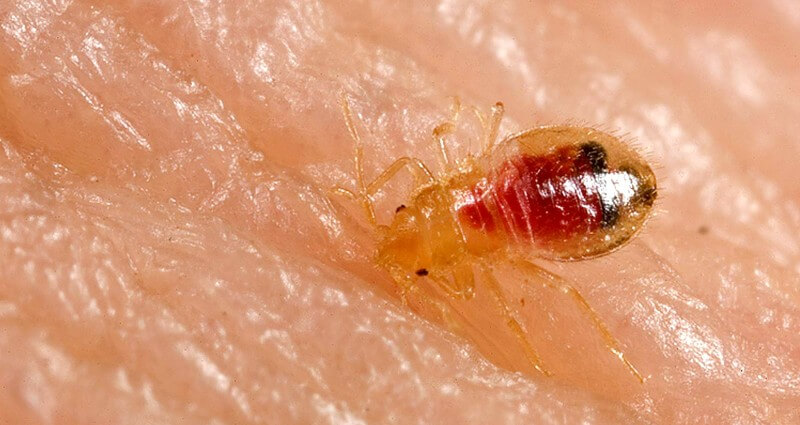Comprehensive Kings Pest Control Services Cincinnati OH
Comprehensive Kings Pest Control Services Cincinnati OH
Blog Article
Kinds of Bug Control: Which Technique Is Right for Your Problem?
When encountered with a pest problem, the choice of a proper approach for parasite control is crucial in properly handling the scenario. From chemical therapies to organic services, there exists a variety of strategies that can be used to deal with different sorts of insects. Each technique includes its own collection of benefits and factors to consider, making the decision-making process a nuanced one. Understanding the subtleties of each strategy and evaluating their compatibility with the certain insect invasion at hand is crucial for achieving lasting success in parasite monitoring. By checking out the different kinds of insect control techniques offered, individuals can make educated decisions customized to their distinct situations, making certain an extra sustainable and effective end result in parasite eradication.
Chemical Parasite Control
Chemical bug control involves making use of artificial or normally obtained chemicals to handle and eradicate pest populaces successfully. This approach is generally used in farming, forestry, and property setups to deal with a wide variety of pests, consisting of pests, rats, and weeds. The usage of chemical pesticides can supply fast and targeted options to pest problems, making it a prominent choice for numerous people and services.
One of the vital benefits of chemical bug control is its ability to swiftly get rid of pests, reducing the danger of damages to plants, property, and human wellness. By utilizing certain chemicals that target specific bugs, this method can properly control infestations while reducing damage to advantageous organisms and the environment when applied correctly.
However, the use of chemical insect control also elevates problems regarding potential negative impacts on non-target types, water resources, and human wellness. It is important to comply with safety and security guidelines, use chemicals properly, and consider different bug control techniques to decrease these dangers and guarantee lasting bug administration methods.
Organic Pest Control
Biological bug control, likewise recognized as biocontrol, uses living organisms to handle and minimize pest populaces naturally. By making use of the bug's natural killers or virus, organic pest control supplies a lasting and environmentally friendly solution to pest administration.

Mechanical Bug Control
Utilizing hands-on and physical approaches to handle bug populaces, mechanical parasite control provides an alternative method that does not depend on the usage of living organisms or synthetic chemicals. This technique entails making use of obstacles, catches, or other devices to physically hinder or remove pests. By obstructing bug entry points or establishing catches to catch them, mechanical parasite control can successfully reduce invasions without introducing chemicals into the setting.
One typical instance of mechanical parasite control is the use of mesh displays on doors and home windows to avoid bugs from going into structures. This straightforward yet reliable approach acts as a physical obstacle, maintaining pests out while permitting for proper ventilation. In addition, devices like mousetraps, fly swatters, and ultrasonic repellents fall under the mechanical parasite control category.
While mechanical insect control methods can be labor-intensive and need regular surveillance and upkeep, they use a sustainable and eco-friendly service for taking care of pest invasions. By integrating various mechanical techniques, building owners can produce an extensive insect control strategy that minimizes reliance on chemical pesticides.
Physical Bug Control

Some common physical pest control approaches include the use of obstacles such as nets or read displays to prevent bug entrance, traps to capture and remove bugs, and hand-picking to physically remove bugs from plants or structures. In addition, strategies like warmth treatments can be used to control pests like bed insects by raising the temperature level to degrees that are deadly to the bugs.
Physical insect control is especially valuable in incorporated pest management (IPM) methods, where numerous bug control techniques are combined for effective parasite administration while decreasing using chemicals. By utilizing physical parasite control techniques, individuals can efficiently attend to insect infestations with very little environmental impact.
Integrated Parasite Management
When carrying out physical parasite control techniques as component of pest monitoring strategies, Integrated Pest Monitoring (IPM) arises as an extensive approach that leverages different techniques to properly regulate pest populaces. IPM concentrates on long-lasting prevention of insects with a mix of organic, social, physical, and chemical devices tailored to particular pest problems. By incorporating several control methods, IPM aims to decrease the dangers connected with pests while also lowering reliance on chemical services.
One key element of IPM is the emphasis on monitoring and examining pest populaces to identify one of the most proper control techniques. This aggressive method permits very early intervention and targeted approaches, bring about more reliable parasite administration. Additionally, IPM promotes ecologically friendly methods by prioritizing non-chemical control approaches and just using pesticides as a last hope.
Verdict

By using the pest's all-natural killers view or virus, organic parasite control uses a lasting and environmentally friendly solution to pest administration. - Kings Bed bug exterminator Cincinnati
Utilizing physical and hands-on approaches to handle insect populations, mechanical insect control provides an alternative approach that does not rely on the usage of living microorganisms or artificial chemicals.An efficient technique to managing pest populations without counting on chemical or biological techniques includes the usage of physical pest control methods.When executing physical pest control techniques as part try this website of parasite management methods, Integrated Insect Management (IPM) arises as a comprehensive method that leverages numerous techniques to effectively control pest populaces. Chemical parasite control includes the usage of pesticides, biological insect control uses natural killers, mechanical bug control involves physical barriers, physical insect control includes trapping or eliminating insects, and integrated pest monitoring incorporates numerous methods for a holistic technique to pest control.
Report this page